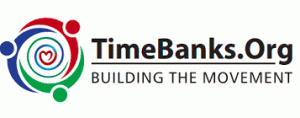Reflection by Edgar Cahn
Humans are social animals. We are descended from primates who looked after each other’s offspring if the mother had to leave her infants to do the foraging herself because her mate had been killed. Acceptance meant survival. Ostracism would have meant death for her babies.
Depending upon neighborhoods, between 25% and 41% of teenagers will have had one arrest before they turn 23. A run-in with the law has consequences. A police record affects employability, eligibility for student loans, for public housing, for credit cards. It also can define what peer group will accept one, how neighbors and local stores treat you and what careers you can entertain. One is targeted by police; recidivism rates for teenagers exceed 30%. Some 70% of adults, released from prison, are back in prison within three years. Sometimes they have created a new offense; sometimes they have just violated some condition of probation. But they are back and back and back.
The one asset that all human beings have is time. TimeBanking provides a vehicle for redefinition of self, for creation of peer groups, for acceptance by neighbors and, depending upon community, acceptance by critically important institutions – community colleges, employment services, faith-based groups, and recreational facilities.
In Portland, former inmates organized themselves as Men of Honor and played a critical role in reducing crime and violence. In Washington DC, former inmates learned about timebanking and created a Homecomers Academy where they earned time credits providing safe passage across gang territories to enable school children to get back and forth safely to school and escorting seniors going out at night in certain neighborhoods. The time credits enabled them to get food from the food bank, literacy training from the university, and metro passes at a discounted rate. While the program (funded by a foundation grant) was operating, none of the participants returned to prison. They also constituted a unique peer group that provided mutual acceptance and enabled them to bridge back to children and mothers who otherwise wanted nothing to do with them.


Please sign in or register to make a comment.